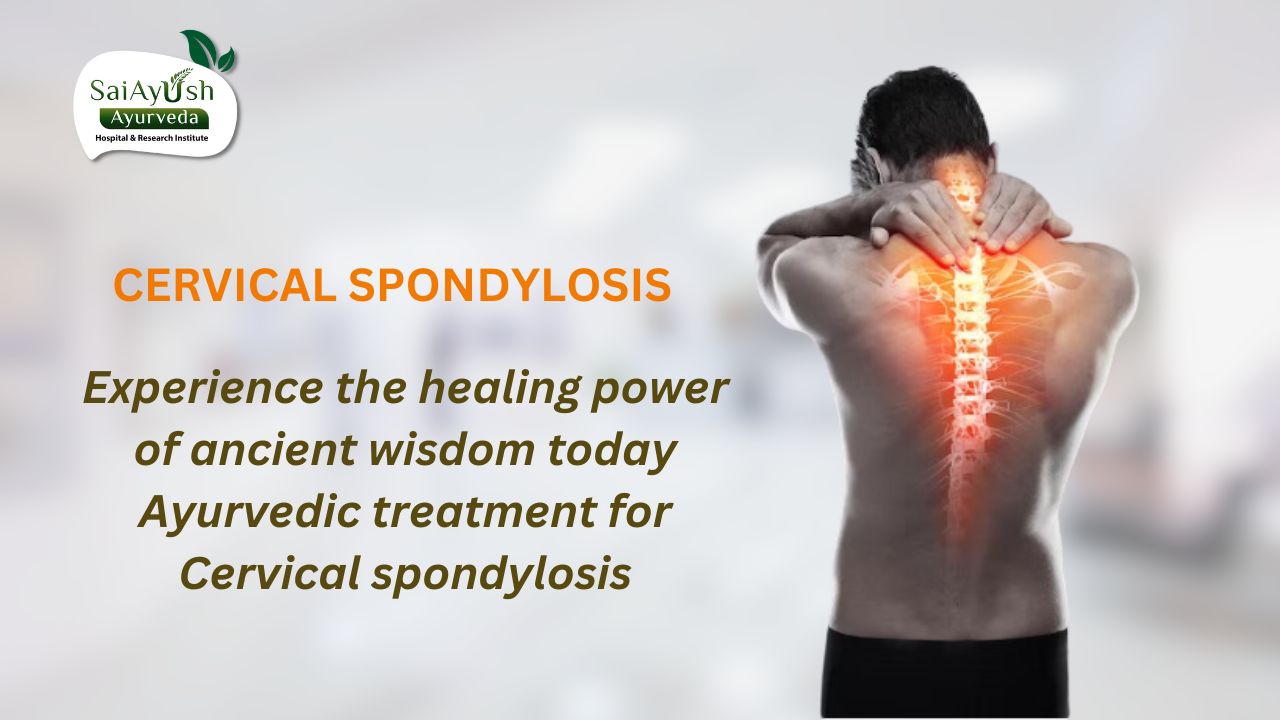Cervical spondylosis or neck pain ,which is the normal deterioration of the spine’s components and is also known as neck arthritis, is a common condition that affects the cervical spine (the neck region). It typically develops with age and involves degenerative changes in the spinal discs, joints, and bones. As cartilage ages, discs lose volume, then eventually dry up and crack. Ligaments may thicken, and bone spurs may form where bones grind against one another in regions where cartilage was once present. All of this is typically described as spondylosis. Risk for getting cervical spondylosis
- Age: Old age
- Habit : Cigarette smoker, weight lifting
- Work: dusk job works and tasks that must be done lengthy neck flexion and extension
- Trauma: history of neck injury
Causes of cervical spondylosis:
- Cervical spondylosis primarily occurs due to the natural wear and tear of the cervical spine over time. Several factors contribute to its development, such as:
- Ageing: The discs between the vertebrae become less hydrated, losing their flexibility and shock-absorbing properties.
- Herniated Discs: When the inner gel-like material of a spinal disc protrudes(ayurvedic treatment for disc protrudes) through its outer layer, it can cause compression on nearby nerves or the spinal cord.
- Bone Spurs: Extra bone growths, known as bone spurs, may form on the vertebrae due to disc degeneration. These can narrow the space available for nerve passage, resulting in pain and discomfort.
- Ligament Stiffness: The ligaments that connect the spinal bones may become stiffer(ayurvedic treatment for stiff neck) and less flexible over time, contributing to the development of cervical spondylosis.
Symptoms of cervical spondylosis: The signs and symptoms of cervical spondylosis can vary from person to person. Common symptoms include:
- Neck pain and stiffness
- Headaches, often originating from the neck
- Radiating pain or numbness in the shoulders, arms, and hands
- Weakness in the arms or hands
- Difficulty in maintaining balance
- Loss of bladder or bowel control (in severe cases)
Investigation X-rays MRI CT scans Treatment For cervical spondylosis in AYURVEDA Cervical spondylosis/Ayurvedic neck pain treatment a disorder marked by degenerative abnormalities in the cervical spine, is treated in a number of ways by the traditional Indian medical system known as Ayurveda. It emphasises regaining the harmony between the body, mind, and spirit in order to advance general health and wellbeing. In ayurveda cervical spondylosis can be correlated with greeva graha which is caused by the aggravation of vata dosha by the causative factors which are described above The following are typical
Ayurvedic remedies for cervical spondylosis:
- Panchakarma: This is a detoxification therapy that aims to eliminate toxins from the body. Neck pain Panchakarma treatments such as Abhyanga (therapeutic massage), Swedana (herbal steam therapy), and Basti (medicated anema),Nasya(medicated oil nasal drop)
- Herbal remedies: Ayurvedic herbs for cervical spondylosis are like Shallaki (Boswellia serrata), Guggulu (Commiphora mukul), Ashwagandha (Withania somnifera), and Nirgundi (Vitex negundo) are commonly used to alleviate pain, reduce inflammation, and improve mobility in cervical spondylosis. These herbs can be consumed orally or applied topically in the form of oils and ointments.
- Best Ayurvedic oils for cervical spondylosis : External application of medicated oils like Mahanarayan oil, Bala oil, and Gandha taila can provide relief from pain and stiffness in the neck and shoulder region. These oils are often used for gentle massage to improve blood circulation and relax the muscles.
- Yoga and Pranayama: Specific yoga asanas (postures) and pranayama (breathing exercises) can help strengthen the neck and shoulder muscles, improve flexibility, and reduce pain in cervical spondylosis. Some beneficial asanas include Bhujangasana (Cobra pose), Marjariasana (Cat-Cow pose), and Setu Bandhasana (Bridge pose). However, it is important to practice these under the guidance of a qualified yoga instructor.
- Diet and lifestyle modifications: Ayurveda emphasises the importance of a balanced diet and a healthy lifestyle in managing cervical spondylosis. Consuming warm, nourishing foods ( Ayurvedic diet for cervical spondylosis) and avoiding excessive intake of spicy, oily, and processed foods can help reduce inflammation. Regular exercise, adequate rest, and maintaining a good posture while sitting and standing are also essential.
Ayurveda cures the root cause of the disease, which can be done with internal and external medications, even in cases where surgery is suggested. Through ayurvedic treatment, not only physical but also mental health improves. Lifestyle Modifications and Prevention: To manage cervical spondylosis and prevent its progression, certain lifestyle modifications can be beneficial:
- Maintaining good posture while sitting, standing, and sleeping.
- Regular exercise to strengthen the neck and back muscles.
- Avoiding activities that strain the neck, such as excessive bending, lifting heavy weights, or repetitive neck movements.
- Using ergonomically designed furniture and equipment, especially for those with desk jobs.
Conclusion: Cervical spondylosis is a common condition that primarily affects the elderly population. Understanding its causes, recognising the symptoms, and seeking appropriate medical attention are crucial for effective management. With the right treatment, lifestyle modifications, and preventive measures, individuals with cervical spondylosis can experience improved quality of life and reduced pain and discomfort in their neck and surrounding areas.
Discover the healing power of Ayurveda with our latest article at Sai Ayush Ayurveda Hospitals! Dive into the age-old wisdom that can rejuvenate your body and mind. Click here to read more:




















0 Comments